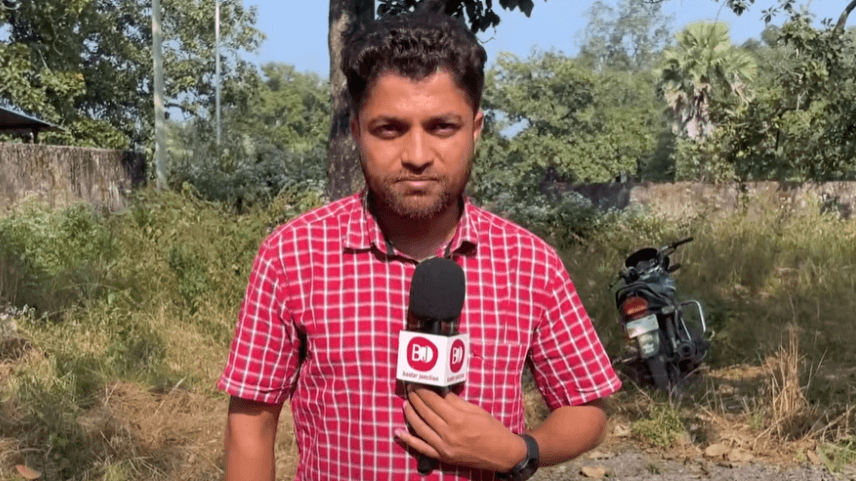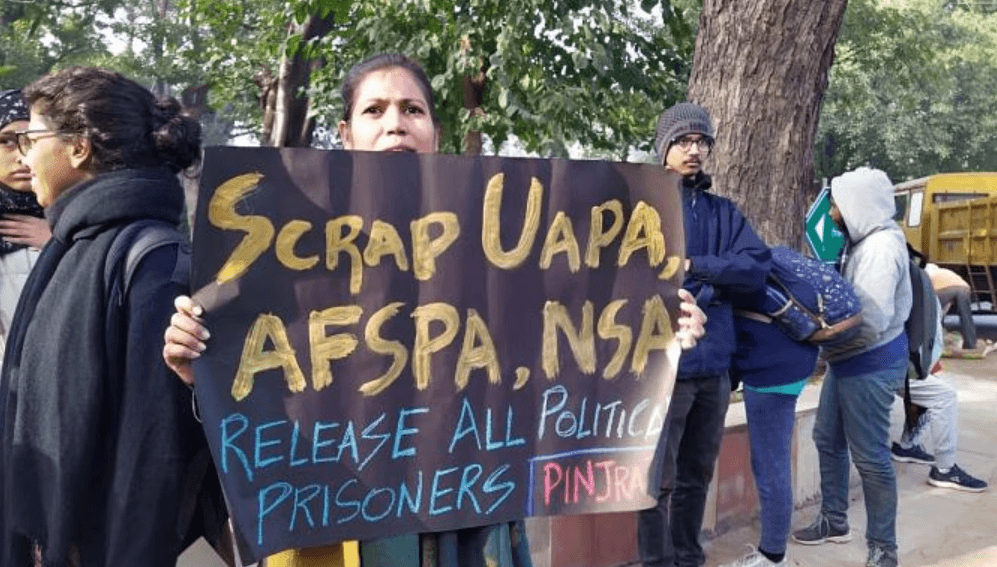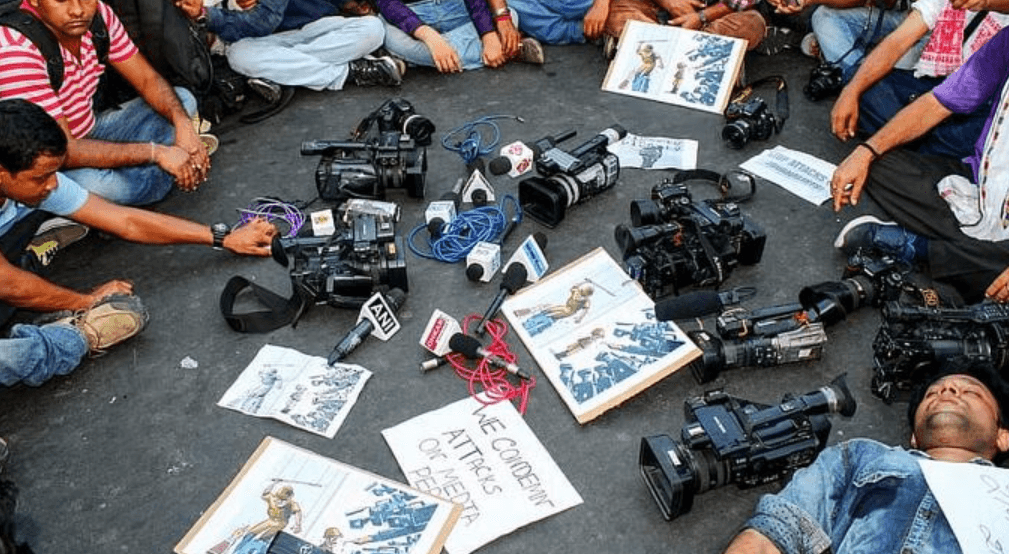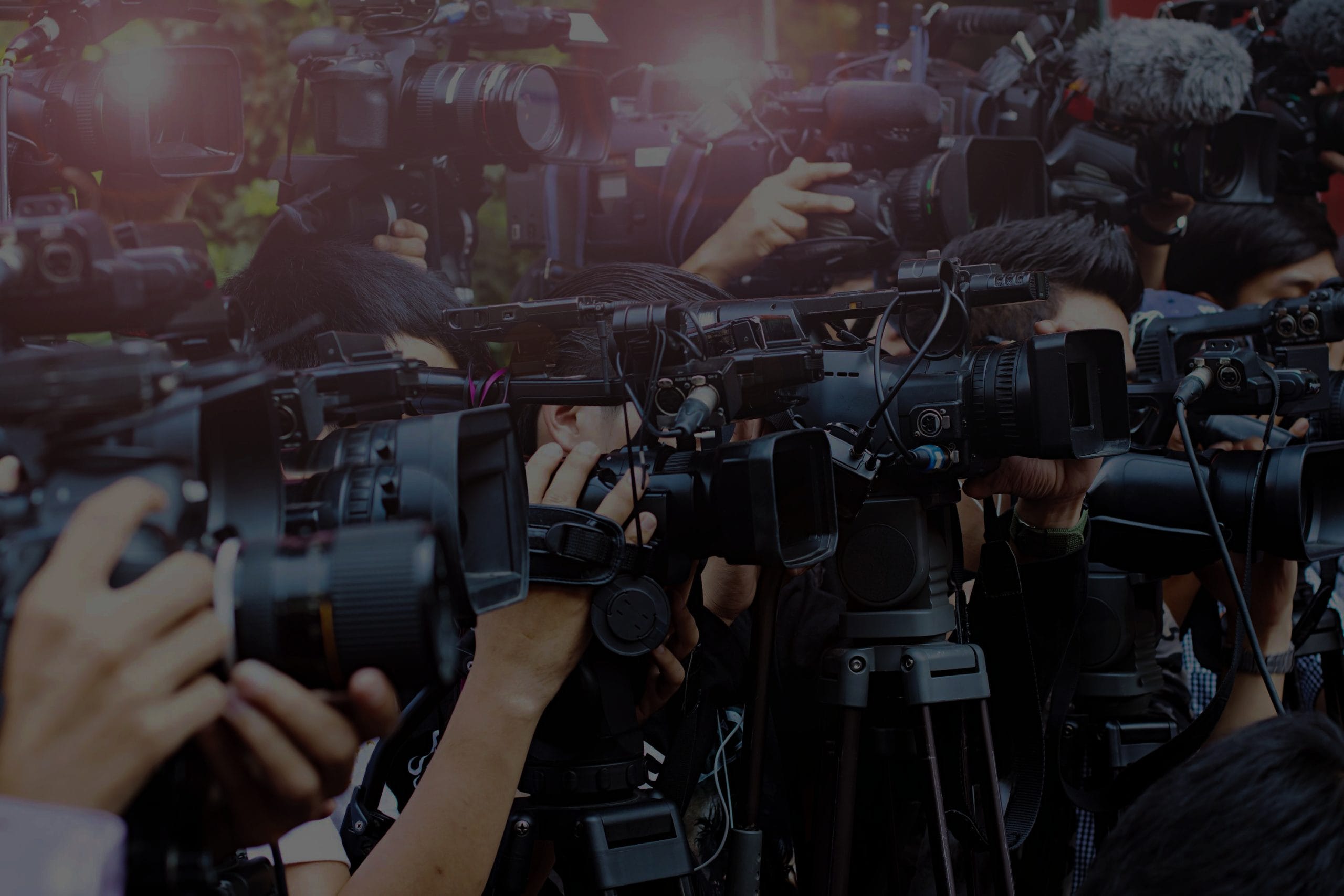India has risen from rank 159 to 151 on the Reporters Without Borders— Reporters Sans Frontières (RSF) World Press Freedom Index, out of the 180 countries that are evaluated on this index. However, despite climbing up on the index, RSF has stated that “press freedom is in crisis in the world’s largest democracy…” Further in their report on India, RSF stated that “India’s media has fallen into an ‘unofficial state of emergency,’ since Narendra Modi came to power in 2014 and engineered a spectacular rapprochement between his party, the BJP, and the big families dominating the media.”
RSF mentioned that what can be seen is the “end of pluralism in the mainstream media” in India by giving the example of NDTV Channel’s acquisition at the end of 2022 by Gautam Adani—a tycoon and a close friend of Narendra Modi.
RSF, in their report, stated that the press freedom situation in India is grave. It pointed out that Mukesh Ambani, a tycoon from the Reliance Industries Group and a very close friend of Prime Minister Modi, owns more than 70 media outlets that are followed by at least 800 million Indians. Freedom House’s “Freedom in the World 2024” report also shows that India’s fourth estate is in trouble. The report has termed the subcontinent’s media as only “partly free,” with two out of four for media independence.
The state of press freedom in India
This year started with a chilling murder of a freelance journalist from Chhattisgarh, Mukesh Candrakar. Mukesh’s report on the corruption in the road-construction project had led the government to order an inquiry into the project. This report is said to be the reason that Mukesh was brutally killed, with his body dumped in a septic tank in Chhattisgarh.

Dilwar Hussain Mozumder, a senior reporter for the digital news platform CrossCurrent, was charged under the SC/ST (Prevention of Atrocities) Act and held for 12 hours at Panbazar Police Station without being arrested. His arrest happened on March 25, 2025, when he was covering a protest outside Assam Co-operative Bank on the alleged corruption within the ranks of the organisation. The bank is run by influential politicians, including a member of parliament and the chief minister of Assam, who are members of the ruling Bharatiya Janata Party (BJP).
In Uttar Pradesh, Amit Dwivedi and Shailendar Kumar Mishra were physically assaulted and humiliated for their reports that criticised the local mayor. The reporters said they were locked in a house for three hours by these men, beaten, threatened with a gun, and forced to undress and drink urine. While this incident took place on 27th October 2024 and seven of the ten assailants were arrested, both the journalists continued to live in fear due to the constant threats, stating that they “would not get away with it next time.“
While intimidation and the misuse of legal provisions are on the rise and have worsened the state of press freedom in India, the targeted attacks and killing of journalists for reporting sensitive incidents have further raised the question of journalist safety in India. On March 8, 2025, investigative journalist and RTI activist Raghvendra Bajpai was shot dead in broad daylight after exposing corruption in Uttar Pradesh.
The colonial legacy of suppressing the dissent: UAPA
Since 2014, at least 36 media professionals have faced UAPA charges. Activists like Umar Khalid and Kashmiri journalists like Irfan Mehraj continue to languish in prisons after being detained under the UAPA law.

Another law being used against journalists is the 2021 Information Technology Rules, which allow the government to make social media sites take down content. Over the last decade, the Indian government has directed Google to take down 1.1555 lakh pieces of content from its platforms, including YouTube and web browsers.
The Unlawful Activities (Prevention) Act is exploited by the government of India to suppress any kind of dissent or criticism levied against the government. The colonial legacy of suppressing dissent by imprisonment is very much thriving in the post-colonial India that claims to be the largest democracy in the world. The systematic use of UAPA allows the Indian administration to chase down the journalist by harnessing the anti-terrorism discourse. This impunity, harnessed by the UAPA, has accelerated the demise of human rights and continues to dismantle the state of press freedom in India.
The RSF report and the recommendations
The RSF asserted that “recent years have seen the rise of ‘Godi media’ (a play on Modi’s name and the word for ‘lap dogs’)—media outlets that mix populism and pro-BJP propaganda. Through pressure and influence, the Indian model of a pluralist press is being called into question. The prime minister does not hold press conferences, grants interviews only to journalists who are favourable to him, and is highly critical of those who do not show allegiance. Indian journalists who are very critical of the government are subjected to harassment campaigns by BJP-backed trolls.”

RSF noted that even though freedom of press is not explicitly mentioned in the constitution, it is protected by the freedom of expression. But the government of India continues to use the colonial-era laws to suppress the media. It also mentioned the increased use of anti-terrorism laws against journalists. The Modi government has introduced “several new laws that give the government extraordinary power to control the media, censor news and silence critics.”
Further, Indian media is primarily funded by advertising revenues, which are provided by the government. And thus, with the use of these funds, the small media outlets are forced to censor their news. The state of media outlets in India is in shambles since the ownership of these outlets has become heavily concentrated in the hands of the few business tycoons with close relations with the present government.
The RSF report also states that “India is one of the world’s most dangerous countries for the media. Journalists who are critical of the government are routinely subjected to online harassment, intimidation, threats and physical attacks, as well as criminal prosecutions and arbitrary arrests.“
According to RSF, India signed the Partnership for Information and Democracy, a commitment shared with 51 other states worldwide in 2019. This initiative was to ensure and formalise nations’ commitment to promoting access to free, independent, diverse and reliable information. It also established that working journalists must be protected against all forms of violence, threats, discrimination, arbitrary detention and abusive legal proceedings. However, India continues to be unsafe for independent and unbiased journalism, as seen through the latest happenings.
RSF, in another of their reports, suggested few recommendations to guarantee press freedom. They suggested that the Unlawful Activities Prevention Amendment Act, 2019 (UAPA), and the Public Safety Act, 1978, must not be used as tools to repress media personnel. Also, the state must not misuse the criminal laws against journalists.
While the prime minister refuses to hold press conferences and grants interviews only to the journalists that are favourable to him, India continues to witness the downfall of press freedom, where the horrors of suppression can be seen affecting the whole country such that no one can criticise the government, and the journalists that have tried to raise their voices against the government are subjected to harassment campaigns by BJP-backed trolls.
About the author(s)
Reeba Khan is a Political Science student at Delhi University. As a writer and student journalist, she has a keen interest in issues of identity, conflict, and politics of belonging. She writes to remember and to resist





